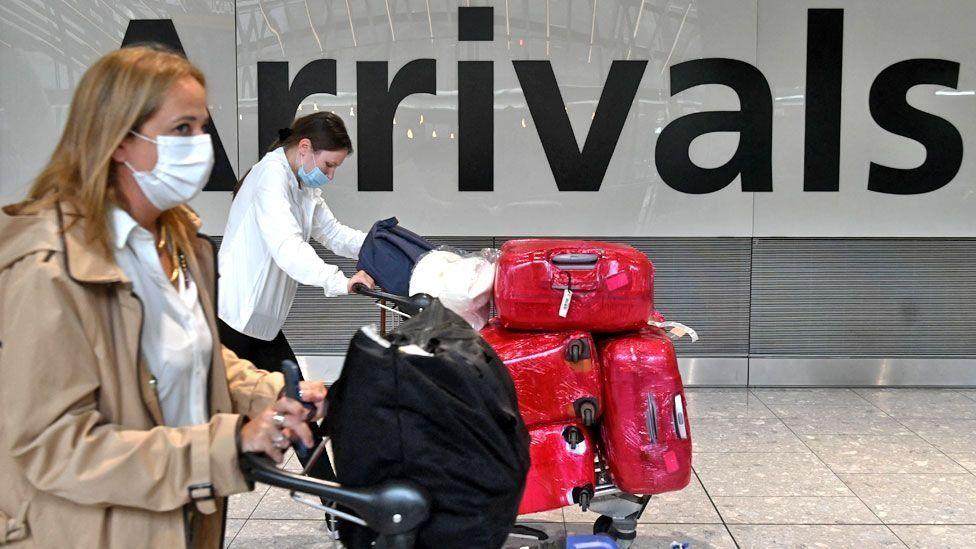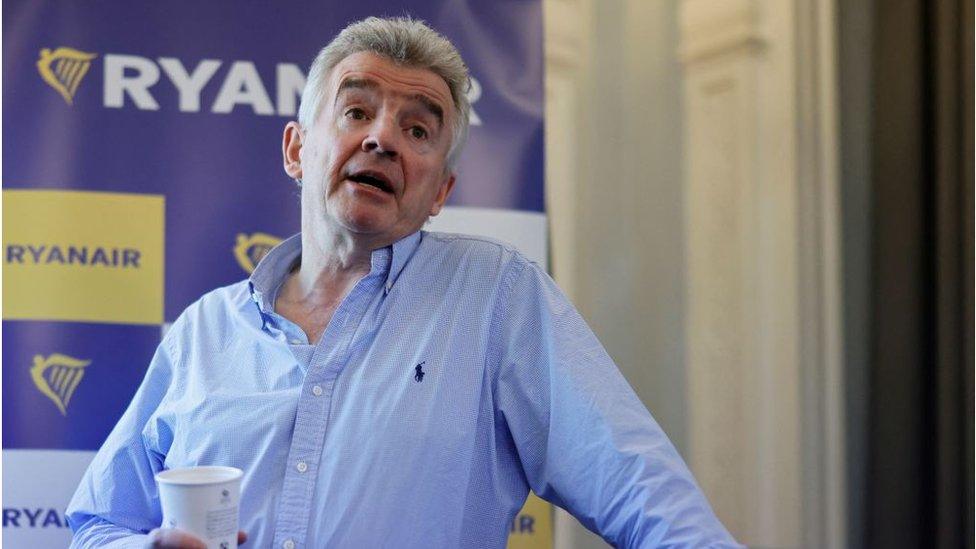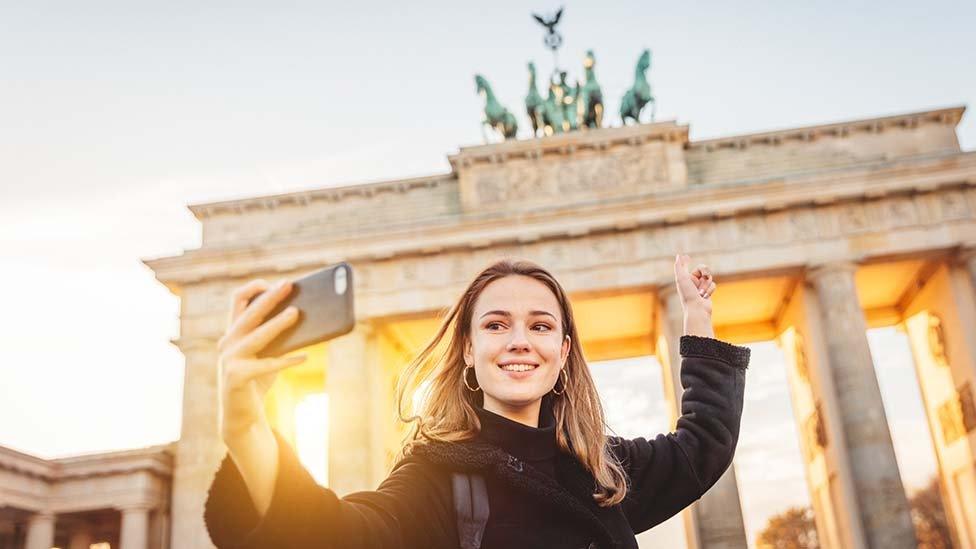All UK travel rules to end on Friday, says government
- Published
- comments

The arrivals process into England is set to become easier for travellers
The transport secretary has confirmed that all remaining Covid travel measures will be scrapped.
Currently, everyone travelling to the UK must complete a passenger locator form before they arrive.
Travellers who are not fully vaccinated have to take a Covid test before departure, fill in the form, and book and pay for a PCR test after arriving.
Grant Shapps confirmed in a tweet that these rules will end at 04:00 on Friday.
His announcement means that passengers who are not fully vaccinated will no longer have to take Covid tests before and after travelling to the UK. The passenger locator form will no longer be necessary either.
People planning an overseas trip will still need to be aware of other countries' entry rules.
Mr Shapps tweeted: "These changes are possible due to our vaccine rollout and mean greater freedom in time for Easter."
When any new Covid strains appear in the future, the government said its default approach would be to use "the least-stringent measures" for restricting travel.
Its "Living with Covid" plan said new measures at the border would only be considered in "extreme circumstances".
It said the UKHSA would closely monitor the prevalence and spread of Covid variants.
Scotland and Wales have agreed to follow England in scrapping the remaining coronavirus border measures.
But Welsh Health Minister Eluned Morgan said she was doing so "reluctantly" - and was "extremely disappointed" that testing requirements and the passenger location form were being ditched.
The Scottish government said consistency across the four nations was agreed because of the "negative impact of non-alignment on the tourism industry".
Testing requirements for fully-vaccinated arrivals into the UK were dropped in February.
The latest move was welcomed by some figures in the travel industry, which has campaigned for the remaining rules to be dropped so businesses can take full advantage of strong summer holiday demand.
Tim Alderslade, chief executive of trade body Airlines UK, said: "Today's announcement sends a clear message to the world - the UK travel sector is back.
"With travellers returning to the UK no longer burdened by unnecessary forms and testing requirements, we can now look forward to the return to pre-Covid normality throughout the travel experience."
A Virgin Atlantic spokesperson said: "The removal of all remaining UK travel restrictions is the final important step towards frictionless air travel, helping to further restore consumer confidence as we welcome more customers back to the skies this spring and summer.
"To uphold the experience of all travellers, it's vital that the UK Government works closely with industry to ensure the UK border is ready for increasing passengers, as international travel ramps up."
Meanwhile, Eurostar's chief executive Jacques Damas said the easing of restrictions would help the cross-Channel train operator's recovery.
"We hope and expect to see the UK's approach replicated across our other markets in the coming weeks," Mr Damas said.
Challenges remain
However, as Covid restrictions recede, other headwinds for the aviation industry are appearing.
The price of jet fuel has soared as a result of higher crude oil prices. This adds to cost pressures on airlines, although some have been protected by their hedging strategies, whereby they purchased fuel in advance at lower prices.
On Friday, the chief executive of Heathrow airport, John Holland-Kaye, said the recovery of aviation remained "overshadowed by war and Covid uncertainty".
Businesses will also be keeping a careful eye on whether consumers' confidence to book is knocked by the war in Ukraine and rising household bills squeezing disposable incomes.
Air France-KLM and Ryanair have both recently warned air fares will rise.
- Published1 July 2022

- Published2 March 2022

- Published14 February 2022
